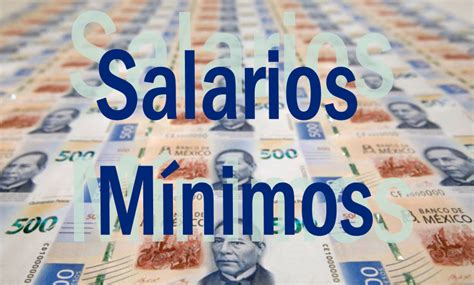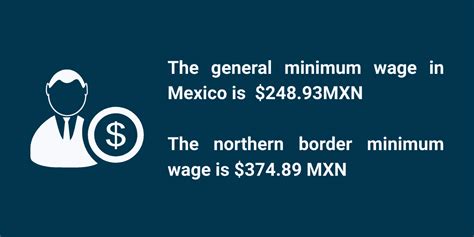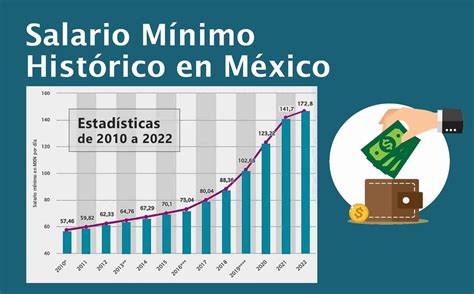For anyone exploring the job market in Mexico, one of the most discussed topics in recent years has been the *salario mínimo*, or minimum wage. Driven by ambitious government policy, Mexico's minimum wage has seen some of the most significant increases in the world, aiming to improve the quality of life for millions of workers. While most professionals will earn substantially more than this legal floor, understanding it provides essential context for the national economy and the baseline for all compensation discussions.
As of 2024, the daily minimum wage ranges from $248.93 MXN to $374.89 MXN, depending on the region. This article will break down what these figures mean, the factors that drive actual salaries far above this baseline, and what it signals about Mexico's economic landscape.
What is the 'Salario Mínimo' and How Does It Work?

The *salario mínimo* is the lowest legal remuneration that employers in Mexico can pay their employees for a standard workday. It is not a specific job but a legal wage floor established by the federal government to protect workers from unduly low pay. The primary responsibility for setting this wage falls to the National Minimum Wage Commission (CONASAMI), which consists of representatives from the government, labor unions, and employer organizations.
The system is designed to provide a basic level of income to cover the essential needs of a worker and their family. A key feature of Mexico's current system is its two-tiered structure:
1. General Minimum Wage: This applies to the majority of the country.
2. Northern Border Free Zone (Zona Libre de la Frontera Norte - ZLFN) Minimum Wage: A higher rate for municipalities along the U.S. border, designed to offset a higher cost of living and strengthen the local economy.
Current Minimum Wage Rates in Mexico (2024)

As of January 1, 2024, the official minimum wage rates have seen a 20% increase from the previous year, continuing a trend of aggressive annual hikes.
According to data from Mexico's National Minimum Wage Commission (CONASAMI), the current rates are:
- General Minimum Wage: $248.93 MXN per day. This equates to approximately $7,570 MXN per month. (Roughly $450 USD/month, subject to exchange rate fluctuations).
- Northern Border Free Zone (ZLFN) Minimum Wage: $374.89 MXN per day. This equates to approximately $11,400 MXN per month. (Roughly $680 USD/month, subject to exchange rate fluctuations).
It is crucial to note that these figures represent the absolute minimum. The average salary for a professional in Mexico is significantly higher. For context, salary aggregator Payscale reports the average monthly salary in Mexico to be around $29,000 MXN, demonstrating that the *salario mínimo* serves as a safety net, not a target for skilled labor.
Key Factors That Influence Professional Salaries in Mexico

While the minimum wage sets the floor, it's these factors that truly determine your earning potential in Mexico. This is the most critical section for any student or professional planning a career in the country.
### Geographic Location
Beyond the two-tiered minimum wage system, location is a primary driver of salary variance. Major economic hubs have a higher cost of living and a greater concentration of high-paying jobs.
- Top-Tier Cities: Mexico City, Monterrey, and Guadalajara host the headquarters for multinational corporations, major financial institutions, and burgeoning tech scenes. Salaries here are the highest in the country to attract top talent.
- Northern Border Free Zone: As noted, cities like Tijuana, Ciudad Juárez, and Reynosa have a legally mandated higher wage floor and a strong manufacturing (maquiladora) industry, leading to competitive salaries in that sector.
- Rest of Country: Salaries in smaller cities and rural areas are generally lower, aligning more closely with the general minimum wage for unskilled labor and reflecting a lower cost of living.
### Level of Education
Education is a powerful determinant of income in Mexico. While a high school diploma may qualify an individual for roles at or near the minimum wage, higher education dramatically increases earning potential.
- Bachelor's Degree (Licenciatura): This is typically the minimum requirement for professional entry-level roles in fields like business, engineering, and marketing, with salaries starting well above the minimum wage.
- Master's Degree & PhD: Advanced degrees, especially in specialized fields like finance, data science, or specialized engineering, can command some of the highest salaries in the market. An MBA from a reputable university is a significant salary booster.
### Years of Experience
Experience is universally valued, and Mexico is no exception.
- Entry-Level (0-2 years): Professionals starting their careers will earn a premium over the minimum wage, but their salaries will be at the lower end of the professional scale for their field.
- Mid-Career (3-8 years): With proven skills and a track record of success, professionals can expect significant salary increases.
- Senior/Executive Level (8+ years): Senior managers, directors, and executives with extensive experience command top-tier salaries, often supplemented by performance bonuses and other benefits that place them in the highest income brackets.
### Company Type
The type of company you work for has a massive impact on compensation.
- Multinational Corporations (MNCs): U.S., European, and Asian companies operating in Mexico typically offer the most competitive salary packages, often benchmarked against international standards. They also tend to offer superior benefits.
- Large National Corporations: Major Mexican companies (e.g., in telecommunications, cement, or consumer goods) also offer strong, competitive salaries to attract and retain the best domestic talent.
- Small and Medium-Sized Enterprises (SMEs / PYMES): These companies form the backbone of Mexico's economy. While they offer invaluable experience, their salaries are often more modest and may not include the extensive benefits packages of larger corporations.
### Area of Specialization
Your specific profession and industry are arguably the most important factors. High-demand fields command premium salaries.
- Technology & IT: Software developers, cybersecurity experts, data scientists, and cloud engineers are in extremely high demand and can earn salaries comparable to those in some U.S. or European markets, especially in remote work scenarios.
- Finance & Banking: Roles in investment banking, financial analysis, and corporate finance are traditionally high-paying.
- Engineering: Specialized engineers, particularly in the automotive, aerospace, and energy sectors, are highly compensated.
- Healthcare: Medical specialists and professionals in the pharmaceutical industry also rank among the top earners.
The Economic Context and Future Outlook

Unlike the U.S. Bureau of Labor Statistics (BLS) which projects job growth for specific careers, the outlook for Mexico's minimum wage is a matter of national economic policy.
The current administration has made raising the minimum wage a cornerstone of its economic platform, arguing it reduces poverty and stimulates domestic consumption without causing runaway inflation. The World Bank has noted that these increases have helped reduce wage inequality in Mexico. The outlook is for this trend to continue, with the government aiming to ensure the minimum wage is sufficient to cover the basic needs of a family. For businesses, this means adjusting to higher labor costs, while for workers, it signifies a strengthening of the social safety net.
For professionals, this policy signals a robust focus on improving labor conditions and purchasing power, which can lead to a more dynamic and stable domestic market.
Conclusion: Key Takeaways for Professionals and Workers

Understanding the *salario mínimo* is about understanding the foundation of the Mexican labor market, not your career's ceiling.
Here are the key takeaways:
- It's a Floor, Not a Target: The minimum wage is a legal baseline. Professionals with degrees, skills, and experience will and should earn significantly more.
- Recent Growth is Historic: The rapid increases in the *salario mínimo* reflect a major positive policy shift aimed at improving worker welfare and boosting the internal economy.
- Your Value is in Your Skills: The true drivers of a high salary in Mexico are the same as anywhere else: your level of education, years of relevant experience, industry demand, and the type of company you work for.
- Location Matters: Your paycheck will be heavily influenced by whether you work in a major metropolitan hub like Mexico City or a smaller regional town.
For anyone looking to build a career in Mexico, the focus should be on acquiring in-demand skills and experience. The rising minimum wage is creating a healthier economic environment, but your personal success will be built on the value you bring to the marketplace.
